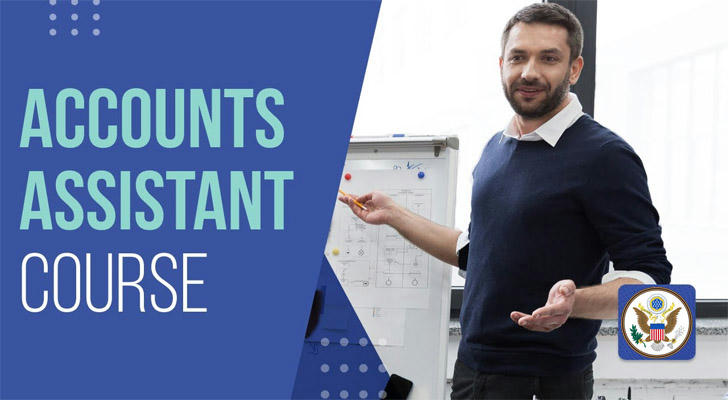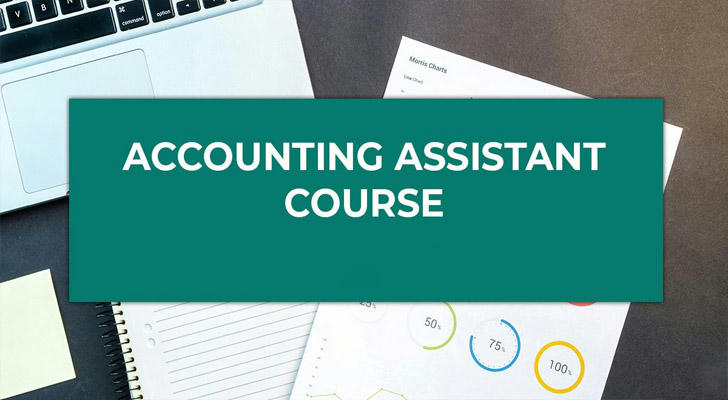Accounting Assistant Training: Building Essential Skills for a Stable Career

Accounting is the backbone of every business, ensuring financial accuracy, compliance, and informed decision-making. As companies continue to expand, the demand for skilled accounting assistants is rising. These professionals support accountants with essential tasks such as bookkeeping, financial reporting, and tax preparation.
This article explores the importance of accounting assistants, industry demand, key skills, training options, and career pathways for those interested in this profession.

The Role of an Accounting Assistant
Accounting assistants play a crucial role in financial departments by handling daily transactions, financial records, and administrative duties. They work in corporations, government agencies, small businesses, and non-profits.
According to the National Association of Certified Public Bookkeepers (NACPB), accuracy and attention to detail are among the most important skills for this role, as even small mistakes can lead to significant financial errors.
Key Responsibilities of an Accounting Assistant
✅ Bookkeeping – Recording daily financial transactions, including purchases, sales, and expenses.
✅ Processing Payroll – Assisting in calculating wages, deductions, and tax withholdings.
✅ Managing Accounts Payable & Receivable – Handling invoices, payments, and outstanding balances.
✅ Financial Reporting – Preparing balance sheets, income statements, and cash flow reports.
✅ Tax Preparation – Assisting with tax filings and ensuring compliance with regulations.
✅ Bank Reconciliation – Comparing financial records with bank statements to identify discrepancies.
Accounting assistants help businesses stay organized, compliant, and financially healthy, making them an essential part of the workforce.
Growing Demand for Accounting Assistants
With businesses increasingly focused on financial transparency and regulatory compliance, the need for accounting assistants is growing. According to the U.S. Bureau of Labor Statistics (BLS), demand for bookkeeping, accounting, and auditing clerks is expected to remain steady, with over 1.6 million positions available in the U.S. alone.
Industries That Hire Accounting Assistants
Corporate Businesses: Large companies require accounting assistants to handle financial records and assist in reporting.
Small & Medium-Sized Enterprises (SMEs): Many smaller businesses hire accounting assistants to manage daily transactions and ensure tax compliance.
Government Agencies: Public institutions require financial professionals to track budgets and expenditures.
Non-Profit Organizations: Charities and NGOs rely on accounting assistants to maintain financial transparency and meet funding requirements.
Financial Services: Banks, investment firms, and insurance companies employ accounting professionals to process transactions and analyze financial data.
With financial operations becoming more complex, accounting assistants are highly valued across various industries.

Essential Skills for Accounting Assistants
A successful accounting assistant must have a combination of technical knowledge, analytical thinking, and attention to detail. Key skills include:
Basic Accounting Principles – Understanding concepts like debits, credits, and financial statements.
Bookkeeping & Data Entry – Accurately recording financial transactions and maintaining organized records.
Financial Software Proficiency – Using tools like QuickBooks, Excel, and SAP for accounting tasks.
Mathematical & Analytical Skills – Managing calculations and identifying discrepancies in financial data.
Regulatory Compliance Knowledge – Understanding tax laws, payroll regulations, and financial reporting standards.
Communication & Teamwork – Collaborating with accountants, managers, and external auditors.
As technology advances, automation and AI-driven accounting tools are becoming more common, making software proficiency a valuable skill for accounting assistants.

How to Get Accounting Assistant Training
1. Vocational Schools & Community Colleges
Many institutions offer accounting assistant programs that teach fundamental accounting principles, bookkeeping, and financial software usage. These programs typically last 6 months to 2 years.
2. Online Certification Courses
Online learning platforms provide flexible training options, allowing students to learn at their own pace. Some popular online certifications include:
Certified Bookkeeper (CB) by AIPB (American Institute of Professional Bookkeepers)
QuickBooks Certification for mastering accounting software
Accounting Fundamentals Course by accredited institutions
3. On-the-Job Training & Internships
Many aspiring accounting assistants gain hands-on experience through internships or entry-level roles, allowing them to apply classroom knowledge in real-world scenarios.
4. Professional Certifications
Obtaining certifications can enhance career prospects and demonstrate expertise. Some recognized certifications include:
Certified Accounting Technician (CAT) – Recognized internationally
Payroll Certification – Ideal for those specializing in salary processing
Microsoft Excel Certification – Useful for financial data analysis
Continuing education through accounting workshops, webinars, and financial conferences also helps professionals stay updated with industry trends.
Real-Life Example: How Emma Launched Her Accounting Caree
Emma, a 23-year-old former retail employee, wanted to transition into a stable office career. She enrolled in an online accounting assistant certification program while working part-time.
Through her coursework, she learned QuickBooks, payroll processing, and financial reporting. She then secured a paid internship at a local accounting firm, gaining hands-on experience. After completing her training, she was offered a full-time position as an accounting assistant.
Today, Emma is pursuing additional certifications and planning to advance to a staff accountant role in the future.
The Future of Accounting Assistants
With advancements in financial technology (FinTech), AI-driven accounting software, and cloud-based systems, the role of accounting assistants is evolving. Future job trends include:
Automated Accounting Software – AI tools like Xero and FreshBooks are streamlining bookkeeping tasks.
Remote & Hybrid Work Opportunities – Many accounting assistants now work remotely, offering flexibility.
Cybersecurity & Data Protection – With financial data stored online, knowledge of data security practices is becoming essential.
Specialized Roles – Growing demand for accounting assistants with expertise in taxation, auditing, and payroll processing.
According to a Deloitte Financial Report, 80% of businesses plan to increase their investment in automated financial reporting, making tech-savvy accounting professionals highly valuable.
Conclusion
Accounting assistants are essential to the financial operations of businesses, helping companies stay organized, compliant, and financially stable. With steady demand, career growth opportunities, and a variety of training options, this profession is an excellent choice for those interested in finance and organization.
Whether you’re a young professional starting a career or someone looking for a career change, training as an accounting assistant provides a pathway to long-term job stability and professional growth.
